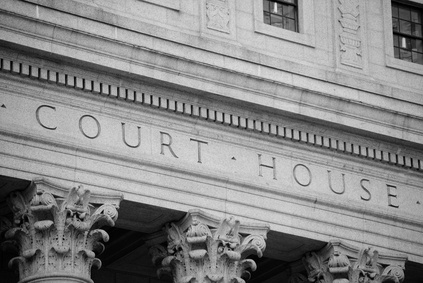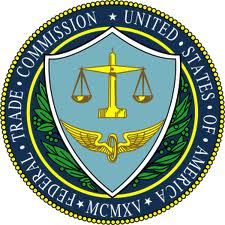Following on the heels of a June 30 decision finding that a New Jersey law firm violated the Fair Debt Collection Practices Act because its attorneys spent four seconds reviewing a pleading, a complaint seeking class certification has been filed against the same firm, citing findings of fact from the adverse court opinion. The complaint, filed in New Jersey state court last month, was removed to the federal District of New Jersey last week. The complaint is available here. The complaint focuses on a May 2014 settlement letter, which it alleges was not prepared by attorneys and was sent before an “attorney exercised professional judgment by…
Last month’s 11th Circuit Court of Appeals’ decision that allowed a Fair Debt Collection Practices Act claim to be made against a bankruptcy proof of claim filed on out-of-statute debt will get a rehearing if a petition filed by LVNV Funding, LLC is granted. An Outlier Decision Crawford caused a stir when it was issued a few weeks ago because it upset a well-settled body of law that prohibited such FDCPA claims. And although en banc requests are often denied, when a decision conflicts with an established body of law there is a better chance it will be granted. That may be what happens here.…
Filing a lawsuit to collect a time-barred debt does not violate the Fair Debt Collection Practices Act according to a June 30 decision from a New Jersey state trial court. The decision, Midland Funding v. Thiel, involved a collection action to recover the unpaid balance of a Home Depot credit card. The law firm representing the creditor filed suit under New Jersey’s six-year limitation period for contracts, which has been applied to countless credit card debts. The trial court dismissed the claim reasoning that this particular credit card could only be used to make purchases at Home Depot. Four Year Limitations…
Companies that hire vendors to place automated calls to cell phones may find themselves at greater risk for Telephone Consumer Protection Act troubles following a decision from the Ninth Circuit Court of Appeals in Thomas v. Taco Bell Corp. The recent decision follows a May 2013 ruling from the Federal Communications Commission in In re Dish Network, LLC, that applied an expanded view of liability for a vendor’s conduct (also known as “vicarious liability”). Widening the TCPA Trap for Vendor Conduct What the FCC said in In re Dish Network, LLC is that TCPA liability is not limited to the “classical” theory of a company’s responsibility for its vendor’s wrongdoing, the theory being that a company is…
Addressing what it termed “a deluge [that] has swept through U.S. bankruptcy courts of late” the 11th Circuit Court of Appeals in Crawford v. LVNV Funding, LLC held that filing a proof of claim on time barred debt is conduct that violates the Fair Debt Collection Practices Act (“FDCPA”). Background The last payment on the underlying debt was made in 2001 and subject to Alabama’s three year statute of limitations. The debtor filed for relief under the Bankruptcy Code in 2008 during which the current owner of the debt filed a proof of claim. Neither the debtor nor the Chapter…
New Jersey lawyers, who file lawsuits to collect debts, face significant risk of lawsuits themselves from the very persons they sue on behalf of their clients. A June 30 decision by a New Jersey federal district court found a law firm violated the Fair Debt Collection Practices Act (FDCPA) because its attorneys did not spend sufficient time reviewing its pleadings or examining documents. Daniel Bock, Jr. allegedly had broken his promise to pay a debt and his creditor hired a New Jersey law firm to obtain payment. The firm sued to recover the debt and Bock soon after settled, paying…
The Consumer Financial Protection Bureau has ordered RealtySouth, the largest real estate firm in Alabama, to pay a civil monetary penalty of $500,000 for mortgage disclosure violations. The CFPB has charged the company with illegally steering purchasers to use its affiliated company, TitleSouth LLC, for title and closing services. The penalty, along with other injunctive relief, are contained in a consent order under which RealtySouth neither admits nor denies the CFPB’s allegations. The CFPB says the company violated the Real Estate Settlement Procedures Act, when it encouraged its agents and in some cases required them to use TitleSouth in real estate…
Auto lenders are in the cross-hairs of federal regulators. The Consumer Financial Protection Bureau recently announced it is drafting a larger nonbank participant rule for auto lenders. In the meantime, the Federal Trade Commission announced yesterday the filing of a stipulated order imposing a civil monetary penalty and injunctive relief against a subprime auto lender. Big Penalty, Restitution, Restrictions The Federal Trade Commission announced yesterday that Consumer Portfolio Services, Inc. will pay a civil monetary penalty of $5.5 million arising from its servicing and collection of consumer motor vehicle loans. In addition to the monetary penalty, the lender agreed to make certain changes to…
The Consumer Financial Protection Bureau’s May 22 Supervisory Highlights report offers a rare glimpse into the CFPB’s thoughts on its first two years of supervision of nonbank entities, particularly debt buyers and debt collectors. Although the report contains several of the bureau’s standard talking points (data integrity in debts sales, for example) it does reveal new issues that have drawn the regulator’s attention and new guidance on pre-existing areas of concern. Compliance Management Systems It’s hard to believe, but according to the bureau some credit reporting agencies had no compliance management systems in place. Where it found a CMS, there were several instances uncovered where neither…
While there are many reported cases discussing attorney fee awards to successful plaintiffs under the Fair Debt Collection Practices Act, fee awards for defendants who had to endure bad faith complaints are few and far between. Recently, one of these rare opinions surfaced in the Eastern District of Missouri in Nguyen v. Capital One Bank, (USA), N.A., 2014 U.S. Dist. LEXIS 46716 (E.D. Mo. Apr. 4, 2014). The underlying putative class action complaint was filed in state court and removed by the defendants who then filed a motion to dismiss. The District Court granted the unopposed motion to dismiss and…
The House Financial Services Committee will question representatives of federal financial regulatory agencies during a hearing tomorrow entitled, “Who’s In Your Wallet: Examining How Washington Red Tape Impairs Economic Freedom.” According to the committee, “This hearing will examine the economic consequences of recent rulemaking, supervisory, and enforcement actions of the Consumer Financial Protection Bureau, the Federal Deposit Insurance Corporation, the Federal Reserve Board, the National Credit Union Administration and the Office of the Comptroller of the Currency on consumers, community financial institutions, the U.S. economy, and our domestic job-creating businesses.” During the hearing, the committee will investigate how the agencies evaluate…
Title loan lenders are under fire from New York Attorney General Eric Schneiderman who announced this week that he reached “agreements” with 10 repossession agents to stop accepting their repossession assignments. Title loan companies do not establish a physical presence in New York to avoid its 16 percent maximum loan interest rate for unlicensed lenders, according to a press release from Schneiderman’s office. According to the press release, these out-of-state title loan lenders are charging interest rates ranging from 100 percent to more than 700 percent. A title loan, which is a type of payday loan, can often worsen a consumer’s financial problems because many are unable to pay off…












